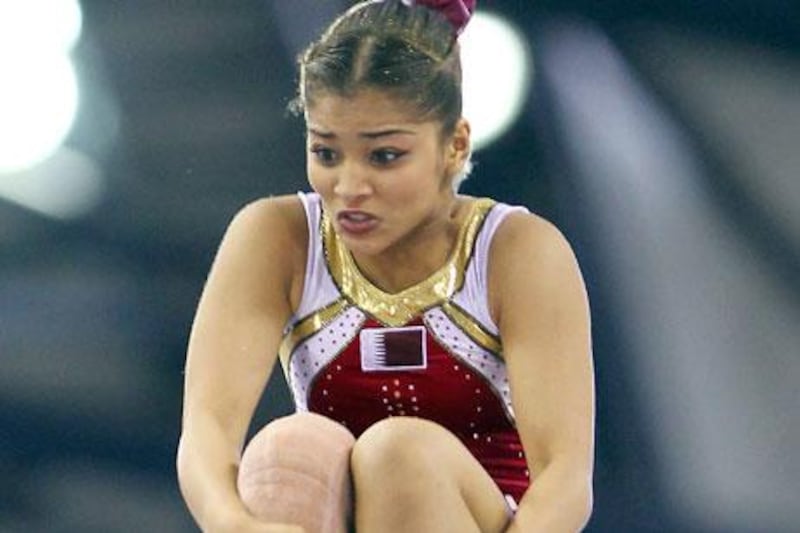DOHA // Three weeks before the Arab Games in Doha, Qatari sports officials called Nada Mohammed Wafa to tell her she would be competing.
Surprised – and a bit scared – the 17-year-old swimmer replied: "Oh, wow! Sure!"
Wafa, who had only competed in school-level events until then, trained hard in the short time she had before making history by becoming the first woman on Qatar's national swim team.
"It's a good feeling, but it's also very lonely," Wafa said. "It's just me, myself and I."
Wafa may be Qatar's lone female swimmer, but she is part of a group of emerging female athletes whom the country hopes to send to the Olympics for the first time in London next year.
And if Wafa's phone rings in five months or somebody confirms her name is on the list, she would be delighted to go and compete.
"I'd be over the moon," Wafa said.
Along with Saudi Arabia and Brunei, Qatar has never sent female athletes to the Olympics.
Last year, the International Olympic Committee urged the three countries to end the practice of sending all-male teams to the games.
While Saudi Arabia remains secretive about its plans to send women to the London Games, Qatar is feverishly working to escape the stigma that comes with failing to include women.
Girls, such as Wafa and gymnast Fatima Abdulla, are competing in the Arab Games with dreams of something bigger.
Qatar Olympic Committee president Sheikh Saoud bin Abdulrahman Al Thani said female athletes have been competing in international tournaments for the past three years, including last year's Youth Olympics in Singapore.
"The only reason women were not included for the 2008 Beijing Games is because they didn't qualify in any sport," Sheikh Saoud said. He added that Qatar is talking to the IOC about sending female athletes to the games next year on wild-card invitations.
"That's the thing with the Olympics. They can't go if they don't qualify," Sheik Saoud said. "It's not about us being unwilling to send women to the tournament. But it takes time to prepare athletes to compete on the international level."
Unlike in Saudi Arabia, where women are still banned from driving, much has changed in Qatar since the country began an ambitious process of opening up to the world, largely through hosting high-profile sporting events in tennis, football, and track and field.
But getting women to compete in Qatar is quite a different thing than sending them to compete abroad.
"It's unusual in this culture," said Hana Al Badr, a 20-year-old handball player, who has seen the change since she joined Qatar's first female handball team four years ago. "My teachers and my friends in school use to look at me and say, 'You are a girl and you are traveling to play outside? How can your family let you?'
"But now, it's become normal."
Wafa, the swimmer, did not win any medals at the Arab Games but succeeded in improving her times.
She beat her best in the 50m breast stroke by three seconds and missed the finals by a second. She also improved her time in the 50m freestyle by a second, beat her personal best in the 100m breast stroke by 15 seconds, and was happy with her time of 1 minute, 10 seconds in the 100m freestyle.
"It was amazing experience," Wafa said. "I had so little time to train, but I finished seconds away from champions.
"I am so happy with my results."
* Associated Press





